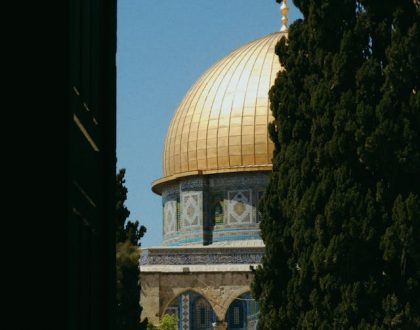The hypocrites – Tarawih reflections 2

Surat al-Baqarah contains so much wisdom that it’s difficult to know where to start talking about it! As well as being the longest surah, it also contains the longest ayah in the Quran (Ayat ad-Dayn, which is about debt) and the best ayah, which is the Ayat al-Kursi.
Bani Israil
There are 115 ayahs about Bani Israil, which is 40% of the surah. Even though there is a whole surah called Surah Bani Israil (another name for Surat al-Isra). Surat al-Baqarah says more about them than that whole surah.
The name of Surat al-Baqarah comes from the story of Bani Israil and the cow, when they did not obey Allah’s command, but stall the command to slaughter the cow as Allah had commanded them to.
وَإِذۡ قَالَ مُوسَىٰ لِقَوۡمِهِۦۤ إِنَّ ٱللَّهَ یَأۡمُرُكُمۡ أَن تَذۡبَحُوا۟ بَقَرَةࣰۖ قَالُوۤا۟ أَتَتَّخِذُنَا هُزُوࣰاۖ قَالَ أَعُوذُ بِٱللَّهِ أَنۡ أَكُونَ مِنَ ٱلۡجَـٰهِلِینَ﴿ ٦٧ ﴾
When Mūsā said to his people, “Allah commands you to slaughter a cow”, they said, “Are you making fun of us?” He said, “I seek refuge with Allah from being one of the ignorant.” [Al-Baqarah, Ayah 67]
The munafiq
In the opening of the surah, Allah mentions three types of people. Muttaqeen (believers), kafireen (disbelievers), and munafiqeen (hypocrites).
Again, even though there is a dedicated Surat al-Munafiqoon, Allah still talks about the hypocrites throughout the Quran. This is because hypocrisy is a phenomenon that never disappears, no matter which century, country, community, you look at.
In Surat al-Baqarah, Allah mentions various attributes of the munafiqoon:
The attributes of the Munafiqeen
1- they pretend that they are believers
2- they are deceitful
3- they have illness in their hearts
4- they spread corruption
6- they mock believers
7- they prefer the dunya over the akhirah
Hypocrites say one thing when they mean another. The word nifaq, hypocrisy, is similar to nafaq, tunnel. It means there is something different on the inside and the outside: on the outside they show imaan, but on the inside they have kufr.
This is why they have two faces – one for the community, and a different one for each other. These days we are able to identify many of the munafiqoon in our community.
When asked to do good, the munafiqoon say they are already doing good. In fact, they say they are reformers – not just doing good, but doing extra.
Some of them even believe what they are doing is right. To us, it is hard to understand how they cannot see the evil they are perpetrating. Allah explains that this is, because their hearts are locked: they can’t receive the light from Allah. This is because deep down their intentions are wrong and they are acting in bad faith.
For example, the munafiq at the time of the Prophet ﷺ betrayed him, because they couldn’t accept that he was the Messenger of Allah. If they had changed their intention and sought the truth, Allah would have opened their hearts. But Allah can see hearts and could see that they had locked their hearts to the truth and were therefore being evil.
Hypocrites spread corruption where ever they go. If you ask them what they are doing, they justify their actions. They are corrupt to the core. We can see this kind of nifaq in politicians all over the world, East and West.
Allah is warning us not to fall into these types and become munafiq or promote them.
In the hadith, the Prophet Muhammad ﷺ also mentions three more attributes of a hypocrite: when he speaks he lies, when he gives a promise he breaks it, and when he is trusted he betrays. [Bukhari]
We need to be careful to avoid hypocritical behaviour.
We ask Allah to give us attributes of the muttaqeen, not the munafiqeen. Ameen.
Based on the reflections of Shaykh Haytham Tamim
Transcribed by Hana Khan
- The consequences of harming Awliyaullah
- If you miss Isha and wake up at Fajr should you pray Isha (qada) or wait until after Fajr?
- Can you pray maghrib if it’s nearly Isha?
- If you wake up as the sun is rising should you pray Fajr?
- How late can pray Isha?
Recommended Posts

The consequences of harming Awliyaullah
May 03, 2024

Inspirational women in Islam
May 01, 2024

The forces of Allah and the fate of the falsifiers
April 26, 2024
